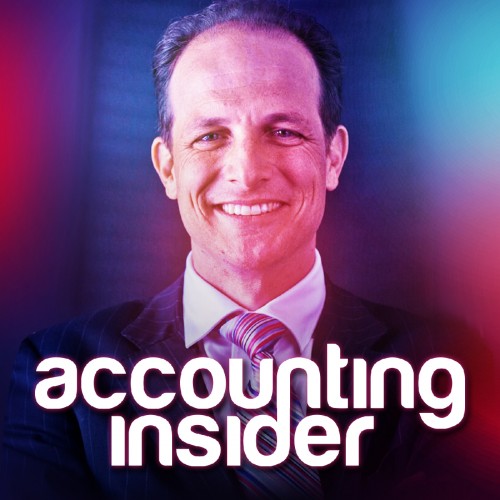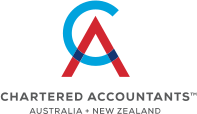Kym Nitschke talks about the amazing favour that medical professionals receive from the Australian Tax Office (ATO) and the banks.
Listen and subscribe on iTunes.
Andrew: Welcome to Accounting Insider. I’m Andrew Montesi with Kym Nitschke, and Kym we’re talking about one of your favourite types of clients and that is doctors. You work with a lot of doctors, and they seem to have some extraordinary benefits when it comes to accounting and tax, and their ability to build wealth. But what you were saying before we hit record, they don’t always understand what they’ve got. So we’re going to talk about that today, and maybe if you can just start by give us a feel for the pay rate that doctors and the scale as they progress through their career.
Kym: This podcast is really just to outline the unfair advantage that they’ve really got. I love doctors, and I can add so much value to their business, and I love working with them because they are the sort of people that take on board advice, and because they’re usually earning so much money the ramifications of what they do, they see come back tenfold on changing from what they’ve always done.
So the results are there and you can offer advice to them in so many areas like in the tax, financial accounting side of things, and then also in the home loans and the financial planning. But it all gets back and it all starts the fundamental core of our business is accounting and it will always be like that.
Just running through some numbers, I’ve done a little bit of research on what you are likely to earn when you qualify, and just mapping through their career on what the numbers look like. So for any doctors out there, who might be at the beginning of the journey or halfway through the journey, they can just sort of benchmark themselves against these sorts of numbers.
So interns when they come out after their six years at med school, they’re earn roughly 50 grand a year. Now these numbers are the base numbers, and when they are doing overtime and things like that at the hospitals, they can stack on a lot of time, a lot of extra earnings on top of these numbers.
RMOs are on about $75,000 a year, Registered Medical Officers, and then the registrars are about $100,000 a year. Now, for the people out there who aren’t in the medical fraternity, the registrars are people that you see when you go to the emergency department, and they’re looking after the patients or ordering the junior doctors around and the nurses. But they are generally the people that are making the calls on what to do.
Then a graduate from specialist college, so your fellow for your Royal Australian College of General Practitioners, there in about 120 grand. So, they’re all doing pretty well.
Andrew: Then from there I don’t know if you want to perhaps give us an idea about the next step beyond that, the guys who are running their own surgery, the sort of earnings that they would start to make.
Kym: On average most doctors after five years, if they’re in a position where they can they will go out and run their own private practice. A Metro GP owner will earn about 275,000 – 500, and that’s when we can really start getting some traction. But, usually then a lot of doctors are specialising in surgery, orthopaedics, entomology, those sorts of fields. When they get to that stage, that’s when you see them starting to crack the bar of a million a year. Depending on their speciality and their list of customers, it will go from low mils to two mil.
Andrew: I’m now starting to understand why grandma was always saying, be a Doctor, be a doctor, and saying no, I wouldn’t want to do that. But now I’m starting thinking, maybe I should apply for medical school is it too late.
Kym: It’s never too late to go back.
Andrew: Okay, let’s perhaps talk about some of the benefits, particularly around loans. What about things like personal loans and car loans, that sort of personal stuff?
Kym: The major benefit that they get is that they get this amazing level of trust with any lender from the day they start working, which is why you don’t see that from any other position. And I think the banks have got their heads together and worked out that the default rate on doctors is almost non-existent. They know that whatever they lend to a doctor, you know, 99.9 times out of 100, they’re going to get that money back.
The big issue with banks you see is that a lot of other professions, there’ll be people who default and stuff it up for everyone, so whereas you don’t see that in the medical sector.
So, we’ve got lenders who we work alongside of, once a doctor has got one pay slip can basically borrow up to $180,000 for a car.
Andrew: Off one pay slip?
Kym: That’s all you need.
Andrew: One pay slip!
Kym: As soon as you qualify, send it to your accountant. Ask them to send it to the Specialist Lenders for Medical Practitioners, and see what sort of response you get and you will be astounded at the results.
Andrew: That’s unreal, and what about things like personal loans.
Kym: So personal loans are a similar sort of kettle of fish. Any doctor can walk into a bank and says, I want to defer my payments for six months, and the bank will say okay, no problems at all. We’ll just put those payments on hold. Because they might be going overseas, they might just want to set up a bit of extra cash.
So the banks will bend the rules for these guys. I’m not saying they won’t charge interest, but they are flexible when they get their money back.
Andrew: They’ve clearly identified that doctors are the number one client for them, and they will do whatever they can to attract them.
Kym: Yes exactly right.
Andrew: What about things like home loans? Are there any benefits there?
Kym: Home loans again, everyone else gets 80% of the value of their house. That’s the benchmark, anything above that you’re going to be paying lenders mortgage insurance, and a higher interest rate. Doctors are exempt from that; they can go to 90.
Andrew: That’s ridiculous, because all through this podcast when we talk about getting finance, there’s hoops, many hoops you’ve got to jump through and it’s just completely different for doctors.
Kym: I’m blown away every time I put up a loan for a doctor, it’s like this will never get out. You know, this person has only been out on their own – I did one recently for a dentist. They didn’t need to have completed the tax return for the year that they are operating in. Just a couple of bank statement showing what has been banged into their account, and the lender said when did they need the money and how much do they need. It was just phenomenal, and you’re thinking, you know, this is just unbelievably good for doctors. You just cannot emphasise it enough.
Andrew: I think I’ll cut you off, but perhaps come back and outline the benefits for home loans again. Lenders mortgage insurance.
Kym: No lenders mortgage insurance for most people kicks in at 80%, above that you’ve got to take out the insurance because the banks start to get a bit nervous, whereas doctors are exempt; they can borrow up to 90% on residential, no questions asked. Still amazing rates.
Andrew: Is this across the board with lenders or just certain types who will give this favour.
Kym: Everyone is getting on board. It started with your specialist like your Medfin’s and your NAB Health, but now Westpac’s jumping on the bandwagon and so is ANZ. So you want to go to a broker to do some work here.
Kym: Absolutely and with the whole broking industry it is moving around so quickly; there’s new deals coming across our desk every day. You can’t expect to be able to walk into any old bank and just get a good deal on the day, because there might be someone around the corner that’s a smaller player in the market who’s got a much better deal and maybe much better suited to you.
Andrew: What about the doctors who are running a private practice, what type of benefits to they get.
Kym: Well again, these numbers are just amazing. They can borrow unlike most people – let’s start with most people. They get on commercial properties and on businesses they’ll get 70% leant to them by the bank and they’ve got to cough up the 30%, which will usually be a case of taking out an extra mortgage on their house or increasing their home loan.
Doctors, they can have 100% against the business and against the premises. I was speaking to my Relationship Manager the other day, and I said how much would you lend a practice for a doctor and for their premises. He said, you know, we’ll go up to 100% on 2 Mil, you know as if a $2 million property for them is just nothing.
Andrew: What about hospitals.
Kym: Okay, so the hospitals they are generally recognised as the starting point for the doctors. So they’re renowned in the industry for being the training facility, the training provider. So the university start them off, but getting them out in the field, the hospitals are responsible for a lot of the education for the doctors.
Now the government has cottoned on to that, and they want to give incentives for doctors to spend as long as they possibly can work in those hospitals, so they’ve got a surplus of doctors on call. So they’ll introduced a number of benefits to make it more attractive for doctors to work at the hospitals, because what you had going back sometime, doctors realised they could make more working privately for themselves. They discounted the work they did at the hospitals because it was lower pay.
So you see all these benefits coming now, which are justifying the doctors spending more time at the hospital. The first one is the FBT benefit. So Fringe Benefit Tax, working for a hospital, they can take $17,000 a year as a Fringe Benefit Tax.
Breaking that down into layman’s terms for people like you and me, that means that they can have $17,000 paid off their mortgage or paid off their credit card or off their personal loan, which would normally be non-deductable but it is a benefit that the hospital is allowing the doctors to take as an incentive to work there.
Andrew: You mentioned all these incentives, so there’s education allowances and all that sort of stuff?
Kym: Yeah, this is a really good one as well. The doctors will be entitled to $10,000 a year and that’s a ballpark figure when they’re working for a hospital as like an education allowance facility. That’s to take on oversea travel to “conferences”, and also to spend on updating their computers, phones, whatever they class as IT. The definition of education is very broad, and it usually you see the blood organisations coming in and doing that as a benefit for the doctors for them to push more work their way.
So you have got these massive companies who really rely on the doctors to refer them work. So in return they’re giving education incentives to the doctors every year who are working with the hospitals
Andrew: Now I know another aspect that you absolutely love is the benefits that doctors get with superannuation can you tell u about that?
Kym: Well this is amazing again, and why should they have different rules from everyone else but they have, so why not take advantage of it. Most people can put $35,000 into superannuation. Doctors, when they put their money into a constitutionally protected fund and they qualify that for when they’re working for hospitals, they can put an unlimited amount into super every year; it’s just phenomenal.
What happens is I’ve got a number of doctor friends who I socialise with and they’re often on call for hospitals without even having to go in and they are earning really good money, of upwards of hundreds and thousands of dollars, just being on call for the hospital should they need to be dragged in in the middle of the night to do some emergency procedure. What my advice is to those guys is that this money that you’re getting paid for doing that sort of work, which is just a bonus over and above of what they’re already earning, why don’t you seriously consider putting a large portion of that into superannuation.
You’ll hardly notice it coming out of your pay in most circumstances because their costs are already serviced by what they’re earning through the hospitals or through their private practices. Why don’t you take some of this money that you’re getting as your on call money and putting that straight into superannuation, so it goes in there, you get tax advantages of it going on; tax is 15% if you’re earning what these doctors are. It’s recently been ramped up to 30%, which is still much lower of your top tax rate of 48 cents in the dollar.
So put that in there and that just builds up over time, and when they get to retirement, that superannuation pool can be worth millions and millions of dollars.
Andrew: We spoke in the last episode about trusts, how can doctors utilise trusts.
Kym: So this is really for the guys who are in private practice. But I see it time and time again when they come to me and they are operating as sole traders because their Medicare number is in their own name. What you can actually do is you can bundle up all the staff that are working for you in your business, and take all of their wages, their work cover, superannuation, the rent that you’re paying on the building, electricity costs. Everything associated with operating that practice. Then you can mark it up and 30% is generally the bench mark on the mark up rate, and then that service entity can charge a fee to the doctor for providing those back office services.
So what you’ve got is you’re shifting profit away from landing on the tax return of the doctor into his service trust or his family trust. This is great for tax planning and asset protection and it can be the difference of a massive tax bill for the doctor or a lower tax bill for the doctor and then an overall marginal tax rate because he’s able to split income off to his wife or his kids if they are over 18, or a sump company which would pay 30 cent in the dollar tax.
Andrew: In your experience, are doctors aware of all of these benefits that we’ve been talking about?
Kym: This is the thing I’m staggered by, no they’re not, and you really need to specialise in this area to understand exactly all of these opportunities that they’ve got. And if they’ve got just Joe Blow down the road, who does accounting for come one and all, then they’re not going to be across all of this because it’s new ground that they have to get to up speed on that and they haven’t got time to do all the research. So really, you’ve got to specialise in this field to be aware of them all, and how best to take advantage of every opportunity.
Andrew: I would assume that all of these high net worth types doctors in particular, very time poor, highly specialised in what they do. I can imagine at times all of this stuff around their wealth might take a bit of a back seat, is that the case?
Kym: That is exactly the case. That’s why it makes such a great partnership to have an accountant, right alongside the doctor. They are usually so busy what they’re doing. They’re run off their feet. They’re trying to maintain a home/work life balance. These guys are up all night getting called into hospitals doing emergency procedures. They often haven’t got time to sit down and actually see the forest for the trees.
They need someone on the sidelines giving them advice saying, look, run all these major decisions by your most trusted adviser. Don’t just try to make them by yourself ad hoc in the car on a mobile phone. You know, just so that you can tick that box because it might not always be the right decision they are coming up with. You’ve really got to see the big picture and get a second opinion.
Andrew: So if there is a doctor listening to this and they’re thinking gee, I’m not across this at all, or they might be at an early stage in their career and wanting to get a nice plan in place, what’s the next step for them?
Kym: Well, speak to their accountant about it, based on some of the things that we’ve discussed today. If you’re not having any joy, go to the website accountinginsider.net send us an email, and outline the email at what stage you’re at. Just give us a summary of what situation you’re in and what the issue you potentially see might be, and then we can come back and give you feedback on it.
Andrew: Awesome, another fascinating chat Kym and I’m just going to jump onto the UDSA website now and see if I can sneak into medical school, because it sounds alright. I mean I think you’ve got to do six years and a hell of a lot of hard work, but there is a bit of coin to be made, I think.
Kym: Absolutely.
Andrew: Thanks very much for listening to Accounting Insider and as Kymbo said, visit the website, accountinginsider.net, thanks for listening.
Listen to Accounting Insider on iTunes and SoundCloud.
Need accounting, financial or property advice? Talk to the Accounting Insider himself. Get in touch.














